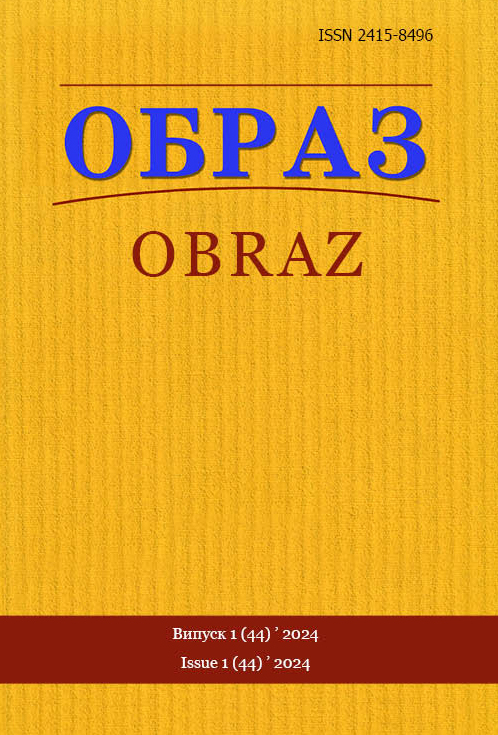Abstract
Introduction. The development of new information technologies makes corrections not only in science, but also in the media space. In the era of information globalization, the development of cross-media, in the era of information wars and the formation of new information and political communities, the problem of determining compromises between the functioning of civil society and media institutions has arisen.
Relevance and purpose. The relevance of the research is outlined by studying the changes taking place in Ukrainian journalism. The goal is to determine the role and place of the mass media in social and political institutions as factors in ensuring the democratic and political rights and freedoms of citizens.
Methodology. The methodological basis of the article is a combination of general scientific methods and special methods and approaches. The processing of the source base was based on the application of analytical-synthetic, logical methods, which helped to formulate a system of initial theoretical propositions, principles of selection, analysis and generalization of the research material. The methods of comparative-historical, analytical, interdisciplinary analysis and synthesis are also applied. Empirical research was conducted by the survey method.
The results. The development of Ukrainian journalism in the new period of history is difficult, as there is a «persecution» of journalists and obstruction of their activities. In the current period of «clanization» of the Ukrainian media, there is a return to censorship and the transformation of pro-government mass media into means of propaganda, and the appearance or restoration of censorship in Ukraine at the beginning of the 21st century. depends on a number of events in recent history related to the actions of the government, the weakness of civil society, the absence of the rule of law, economic instability, the absence of a middle class, and the presence of a shadow sphere of politics and economics.
Conclusions. The new world order in the information space creates new threats: the threat of distortion of the communication process in society regarding the perception of information; the threat of political control; the threat of new opportunities to manipulate public opinion.
References
1. Vladimirov, V. M. (1998), History of Ukrainian journalism (1917–1997): academic. manual Luhansk: East Ukraine. state University, 173 p.
2. Karpenko, V. O. (2003), Press and independence of Ukraine. Practice of media policy 1988-1998. teaching manual. Kyiv: T. Shevchenko KNU Institute of Journals, Nora-Druk, 350 p.
3. Code of ethics of a Ukrainian journalist. URL: http://nsju.org/page/196
4. Lebedeva-Guley, O. Z. (2006), «Development trends of Ukrainian newspaper journalism 1991–2006» URL: http://journlib.univ.kiev.ua/index.php?act=article&article=2169
5. Lyzanchuk, V. V. (2017) Information security of Ukraine: theory and practice: textbook. Lviv: LNU named after Ivan Franko, 728 p.
6. Lyzanchuk, V. V. (2015), Psychology of mass media: a textbook. Lviv: LNU named after Ivan. Franka, 420 p.
7. Mykhaylyn, I. L. (2008), Journalism as a Universe: Selected Media Studies. Kharkiv: Prapor, 511 p.
8. Mitchuk, O. А, Krupskyi, I. V.(2023), «Information and communication activity: content and audience characteristics», Obraz [Image], Issue 1 (41). P. 46-54.
9. Molodychenko, V. V. (2011), «Manipulation of values and means of securing youth from destructive ideological influences». Osvita rehionu. Ukrayinskyy naukovyy zhurnal. [Education of the region. Ukrainian scientific journal]. no. 2. pp. 58-59.
10. Pidkurkova, I.V. (2019), «The level of freedom of the press as an indicator of the development of democracy». Visnyk Natsionalnoho yurydychnoho universytetu imeni Yaroslava Mudroho. [Bulletin of the National University of Law named after Yaroslav the Wise]. no. 2 (41). pp. 142–151.
11. Rizun, V. V. (2003), Masy: lecture texts. Kyiv: KNU named after T. Shevchenko. 116 p.
12. Ukrainian Institute of National Memory. 2000 – disappearance of Georgy Gongadze. URL: 2000 – зникнення Георгія Гонгадзе (uinp.gov.ua)

This work is licensed under a Creative Commons Attribution 4.0 International License.
